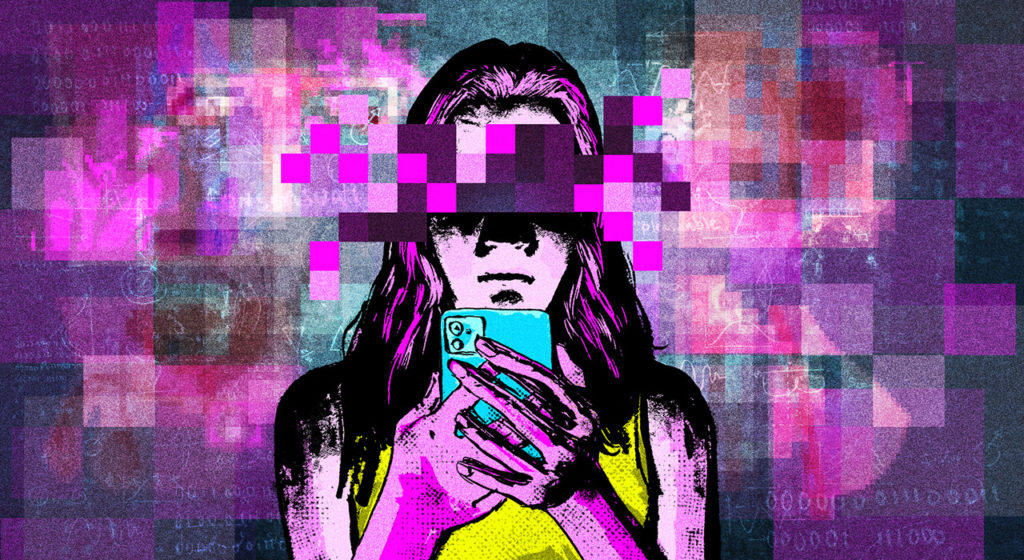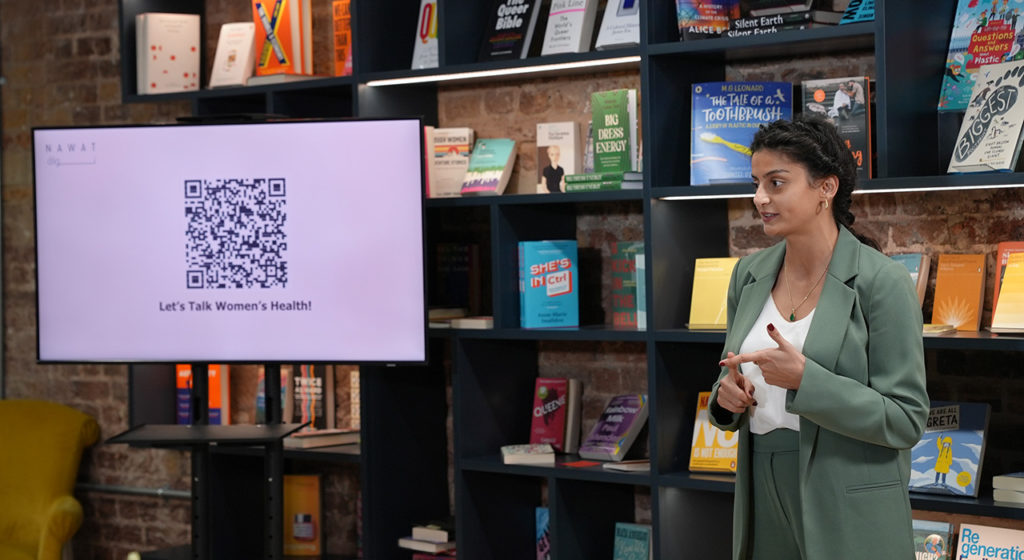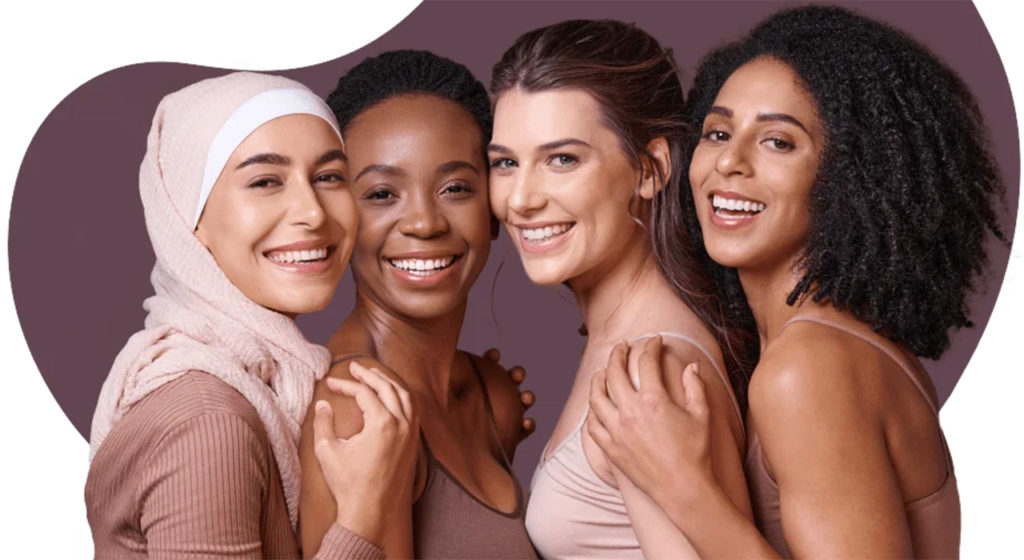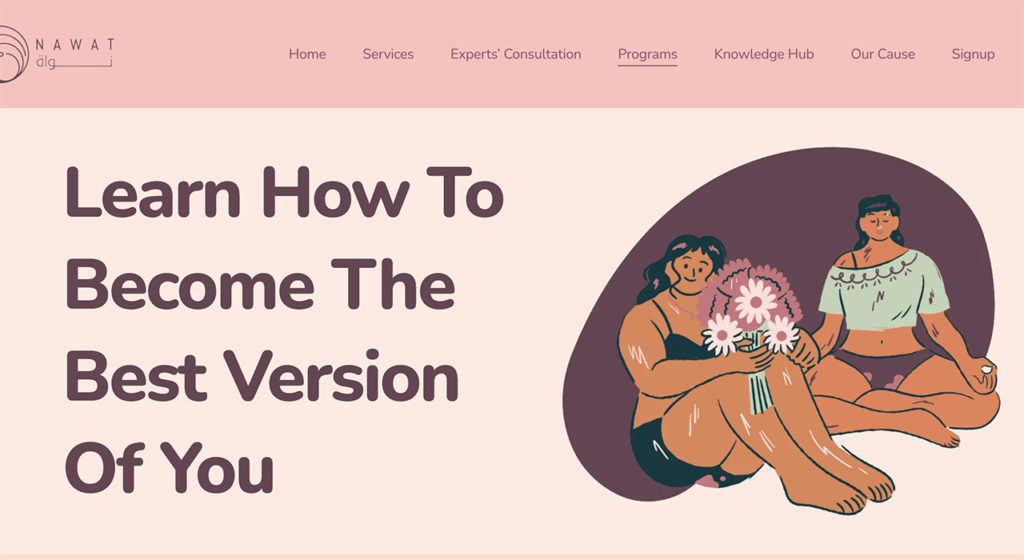Generally a taboo topic, sex and sexuality are constitutive areas of women’s lives, even in traditional communities like the Druze. A project is working to support them in their access to information.
By Alia Chebbab
Sex education is still a widely controversial topic: while some people believe it’s essential to teach young people about sex and sexuality in schools, others argue that it’s inappropriate and should be left to parents to discuss with their children. Having “the talk” can be uncomfortable and embarrassing, and it becomes challenging if you’re part of a tiny, close-knit community like the Druze, one of the major religious groups in the Levant.

There are just over one million Druze people worldwide. They mainly live in Syria, Lebanon, Israel, Jordan, and Palestine, with communities also present in the US, Canada, Europe, and Latin America.
“We are very much a community where if I hear someone’s last name, I will be able to place them: what country they’re from, who their family is, who their relatives are,” says Deena Naime, a Druze-born and raised in the US. “And I think that’s very important because when you come from a community like that, it also really impacts things like sexuality, sexual identity, and sexual education.”
Being part of a community where everyone knows each other makes these discussions difficult. Deena says, “Anything that you want to know, or need to know, or need to express and share, most of the time, you cannot do that without the luxury of anonymity. Anonymity is very important. There must be a great amount of trust to have those conversations without anonymity. That trust usually happens between women when they start to have certain conversations. But in our community, it’s not always possible because a family member is often present.”
The Druze are a small, religious and ethnic group with a rich history and cultural heritage. Originating in Egypt, their faith can be traced back to the 11th century and was influenced by many religious sources, including the Quran, Christian and Jewish Scriptures, and Greek philosophy. They have since evolved into a unique group rooted in traditions and a strong sense of community. Most of their beliefs and practices are concealed from outsiders to preserve their religious heritage.

“The Druze community is very tight-knit. You’re born into the community. If someone wanted to convert, they couldn’t. That’s partially why we are such a small group. It also comes from a background of persecution. And because of that, we have a kind of secretive identity,” Deena explains.
“Sexual education is not spoken about”
Although the Druze community holds an egalitarian regard for men and women in things like marriage, divorce, and inheritance, their views on women’s bodies and sexuality are conservative and characterized by a traditional way of life. However, it varies by generation and the country in which they live.
“We are very much an honor-based community. And one aspect of how we experience honor is through what I’ll call female purity or innocence: in theory, girls in our community are expected to be virgins until they’re married,” Deena says. “But that’s an antiquated belief. It does not hold true to younger generations or across the board. It’s similar again to other religious communities in that respect: it’s an idea, but it’s not legitimized. People don’t go along with that.”
“Sexual education is not really spoken about. It’s expected that girls figure that out along the way. My experience is different because I was raised and educated in the United States. Like most Druze girls in the diaspora, my sexual wellness and health education came from school.”
For Noor Jaber, it was different. She is a Druze public health expert living in Lebanon, where it is deemed inappropriate to have sex education at schools. Although there was an attempt to introduce a comprehensive programme for 12 to 14-year-olds in 1995, it was removed after criticism from several political and religious groups.
“There are several programs that run haphazardly, but nothing is done by the state. My parents know the importance of sexual health education, and my mother educated me on sex and menstruation,” she says. “But I find that a lot of young girls in my community, when they reach puberty, are unaware about this basic physiological phenomenon that they pass through every month – they have no clue about it.”
The impact on women’s health
“There are a lot of challenges associated with a woman’s sexual and reproductive health, especially if it is not related to marriage and reproduction,” Noor explains. “It’s a taboo. Topics like endometriosis, for example. If you’re a single woman, seeking information and getting care is very difficult. Without a safe space to be able to discuss and ask questions, women are worried they might be shamed or blamed for talking about sexual health.”

Noor shares her personal experience to highlight how hard this can be. “As a health expert, I know that even if I’m not married or engaging in sexual activity, I should get a yearly checkup by a gynecologist. I used to freak out. The doctor’s assistant’s first question would be: ‘Are you married?’ Then I would feel like, what should I tell her? Regardless of what I tell her, she shouldn’t be asking this question as the gateway for me being eligible or not to access this service. And the fact that the assistant is from the community, you feel that extra pressure – if I open up, she would go and talk. You don’t trust them, there is no confidentiality. And that is coming from someone who’s educated. Other women wouldn’t even try to access the service.”
“The lack of a comprehensive sex education can create a lot of mental health problems. It impacts your body image and the way you govern specific body decisions,” she explains. “When they get married, many women suffer from vaginismus because they’re so scared of their first sexual experience. Their bodies start having those involuntary responses of it being this traumatic experience, and that they don’t have a right to actually enjoy it, because it’s ‘haram‘ or shameful.”
“Women are also unaware of dangerous signs and don’t seek support or care that would prevent a lot of problems, like breast or ovarian cancer. The fact that we don’t talk about it means they might get diagnosed at a very late stage, when it becomes too late to intervene.”
Breaking the silence around sexuality and health
The internet has played a significant role in the sexual education of young Druze people. For Noor, it is an opportunity to create a safe space for young girls and women.
Wishing to make a change and break the stigma around sexual health, Noor created NAWAT to support young girls and women in her community to access information and to be able to make informed decisions about their bodies, sexuality, and relationships. A digital platform in both English and Arabic that offers educational courses on sexual and reproductive health and connects women with experts anonymously and confidentially.

“I want to shift the discourse around sex education and make it pleasure-positive. Pleasure is the most important motivation to have sex. But many of us have learnt about sex and our sexuality through negative messages that focus on fear and shame. So, while prevention remains vital, managing risks associated with unsafe sexual behaviors is not the only way to talk about sex. The enjoyment of sex and ensuring women’s health and rights are important.”
“We also want to include a holistic aspect, bringing in both traditional and alternative medical approaches. For example, if a woman has endometriosis, she needs to understand how her body works and what is causing that clinically. But how do we bring in the mental health aspects to support her through that journey? How do we bring in the physical aspects like exercise or nutrition? So rather than looking at her sexual and reproductive health like a disease and a cure, it’s more about looking more at the overall quality of how a woman deals with it as part of her everyday life.”
“Women are creating their own care network”
Deena, who is working on her PhD dissertation on how women cultivate spaces of intimacy and care in Druze communities, explains how access to safe online spaces impacts younger generations.
“It is something that is drastically changing in our community. Women are very interested in making a change in terms of sexual education. They are starting these conversations, not just with their own children but with their peers and their friends. There are also a lot of conversations happening right now, even between women and men, in terms of women advocating for more sexual education and more awareness around sexual health and wellness.”
“It’s significantly increasing over the generations. I see, for example, the difference between how older generations of women educated their daughters on things like menstruation versus how women are now educating their children about having their periods and what that cycle looks like.”
“That’s also partly because information is now more accessible – that’s very important. We are at a point in time right now when we understand women’s sexual health in a different way than we ever understood it before. People realize that the female body is different, and that is also reflected in our community.”
“Druze education, both in terms of Druze studies and education within the Druze community, is actually skyrocketing. It is really a crucial time right now in the Druze community, where a lot of these things are coming up to the surface, and people are doing this work. It’s an exciting time because a lot of this change is happening, and it’s beautiful.”
This story was originally published in Nadja (UAE) and is republished within the Human Journalism Network program, supported by the ICFJ, International Center for Journalists.
